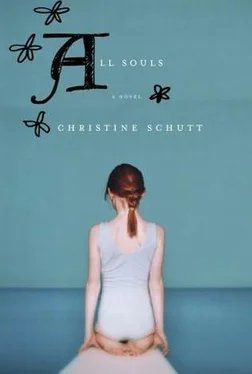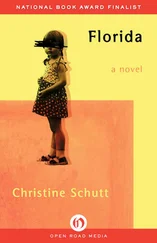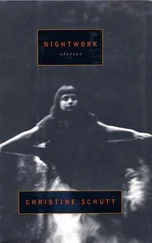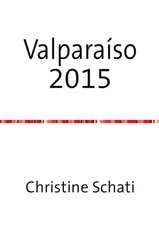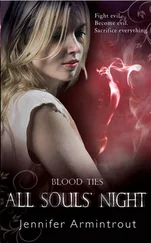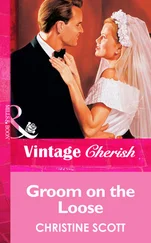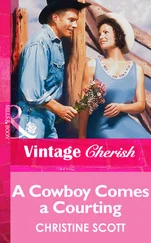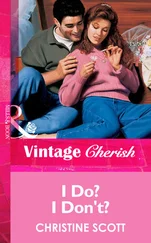Suki an d Alex
"Please," Suki said, "I'm eating."
"I'm glad you are. I don't know what this is."
"A Caesar salad?"
"Really?" and she held up a square piece of iceberg. "What's the good of being rich, if I'm going to end up eating at Two Guys! Suki, I will pay whatever it costs never to eat at Two Guys again."
"Wow."
"Look," Alex said, "I don't want to be with the hoi polloi — that's the name of it, isn't it?" She said, "I know I am just a terrible snob, but honestly, Suki, why are we saving money? What's the point?"
"Something else is the matter, and I know what it is."
"Don't talk about him."
"I'm bored," Suki said. "Maybe after our salads, we should get our feet hennaed."
Siddons
The senior-class Halloween morning meeting was notable for the number of girls who came dressed as skinny icons: Car Forestal came as Audrey Hepburn, and Alex Decrow swagged around in short shorts as Dr. Holly Goodhead, with a fake knife and a conch. Suki, aka Twiggy, did up her enormous eyes and batted them at Dr. Meltzer, saying, "Can you guess who I am?"
"Death?" he tried.
Marlene Kovack was unusually ironic and came as Carrie in a blood-splattered prom queen's dress. Ufia, the black princess, wore a fruit headpiece and carried maracas but was obliged to explain herself as Carmen Miranda. "Doesn't anyone watch Turner Classics?" Edie Cohen and Kitty Johnson came as a couple, Raggedy Ann and Andy, and Sarah Saperstein and Ny Song, another senior couple, came as a Big Mac and french fries.
"Really sexy," Alex said to Ny.
The boom-box girls were singing along with Sheryl Crow, "If it makes you happy, it can't be that bad…"
Francesca Fratini was a "fun food" and came as a banana, and there were the usual number of witches, a policewoman with a riding crop, and a criminal in ball and chains, but the parade fell apart when a yodeling Heidi in a dirndl skated into the fun foods and knocked Fratini down. Lisa Van de Ven in a nurse's outfit with breasts as big as hams and padded hips came to the rescue, and Dr. D, in devil's horns and carrying a pitchfork, stood up to say, "Dismissed. To hell with you all!"
CHF
Car had tried to write it as a story, but it always came out an essay, a pushy essay full of complaint. "My father was using me to get his boyfriends" missed the real complications of Paris last spring. Walking arm in arm with her father through the lobby of Georges V had been fun. Was she mistress or daughter? He was purring corrections: "poissons de …not poisons de" and she was saying, "I am taking AP French, Dad. I ought to know."
Her father's frown was little; his skin was taut and cared for. "Oh, my daddy is a handsome man!" Fragrant and languorous, a man interested in pleasure, delights of all kinds. Museums and jazz. She could write this out, but it lacked what she saw when he walked away from her; she wasn't sure she could put it in words. She knew where he was in the dark recesses of a glassy bar, but she could not see his face. He came back eventually. On his own — he didn't need her — Car's father always fished up a beauty, a man, a man and a woman, a man and a woman and another man. He knew them from somewhere; he met them at the bar. Her father brought them all to the table, but Car was the one who entertained them, or so it seemed to her, answering questions about Siddons, talking Virgil and Sally Mann, Auden and Philip Larkin. Until it was late, midnight, a bit later, then her father took her back to the hotel and saw her to bed before he returned to the party.
Once at a café in an always dank, poor part of town, a yellow light over a table, a damp floor, once here, rushed to for shelter from the rain, breathless, cold, her father touched her. Her father was plucking her wet shirt away from her breasts. "Dad," she said. "Do you mind?" She was no mistress then; then she was his daughter.
"I'm sixteen," Car said to Madame de Ratignole at a cocktail party in honor of a well-known art critic. Car didn't know the art critic's name; she was in AP French lit. They were reading Le Père Goriot.
"Yes," said the hostess, who happened to be Dutch and knew six, seven, eight languages — something like that — enough to make Car feel embarrassed. Bumptious was a word she had learned from her father and should use to describe herself.
But was that party really such a good idea for a college essay?
Mothers
Surely Theta Kovack in the first week of November was the last parent to confer with the school's college adviser to decide on Marlene's college list. She sat in the cubby that passed for an office with its weary rah-rah wall of faded pennants; the office was humid — from crying? Theta sat in a saggy chair and scratched what she thought was a bite in the crook of her arm. The process, Mrs. Quirk was saying, was exciting. Think of every college applied to as a first choice. Marlene, who sat next to her mother, was pulling off the pills on her uniform skirt, and she did not look up when either woman spoke.
"Marlene," Theta said. "We're talking about you."
"Yes."
"Did you hear what Mrs. Quirk just said, then?"
"All the choices are first choices."
"So what are your firsts?" Mrs. Quirk asked.
Marlene, still worrying the skirt, said, "Wesleyan."
The adviser snorted. "A moon shot," she said. "What else?"
"Brown."
"Marlene, you and I have talked before," Mrs. Quirk said.
Theta was studying the map behind the adviser with the pushpins of where last year's class had landed. The largest constellation of pushpins was in New England, but a lone pin in Florida and another in Arizona suggested there were other girls without the numbers who had landed somewhere.
" Think," Theta said to her daughter.
The two women looked at each other, and then they looked at Marlene, who was scratching her leg with the sharp heel of her shoe, making scratch marks wide as a ruler up and down her leg.
"Marlene," Theta said with angrier insistence, "you've had months to consider. What have you been doing?"
"I've been taking notes for Astra Dell. I've been visiting her and reading to her. What college is she applying to?" Marlene's expression when she looked at the college adviser was all chin.
The college adviser smiled. "That's not to the point, Marlene, and an expedient use of Astra Dell. What schools are you applying to, that's the question on the table."
This from "Quirky," the woman Marlene had described as always out of the office when a girl needed her. Quirky forgot a girl's name and where it was she hoped to be next September. Quirk was all numbers. Fifty, 75, 95 percent chances hyphened against the names of colleges on a final list she okayed. The witch wrote letters about every senior; she was the one to broker deals, and she had her favorites. Mrs. Quirk's favorites were sassy, scrappy, outspoken girls with no moon shots. Ufia, Darnell, Krystle, Karen, Teenie — she called them the Sisterhood; Mrs. Quirk was entirely confident of where the Sisterhood would land.
"I see you've got someone in Arizona," Theta said.
"The University of Arizona, yes, we have two girls there. You remember Mary Kate O'Neill, Marlene? She is very happy there."
"What about New York University?"
"What about it?"
Theta interrupted, "What about Wisconsin?"
"Now there you are," Mrs. Quirk said, with nods to Theta again and then eye to eye with Marlene. "You've a 75 percent chance of getting in, Marlene."
The Siddons School was all numbers, and Theta was adding them up. She was adding up six years of Siddons education. Here was math. Six years of her ex-husband saying, "Why not keep Marlene in public school? It was good enough for us." Six years of her own scramble. Loans and the interest on those loans. Theta was glad he wasn't here to hear what was good enough for Marlene. Marlene's choices were not the choices Theta had hoped — hoped perhaps unreasonably — to hear. If they had money, Marlene could afford to be a goof. But Theta was a receptionist at a dentist's office where retainers cost almost as much as she made in a month, and the privileged children with their crooked teeth kept losing them.
Читать дальше
